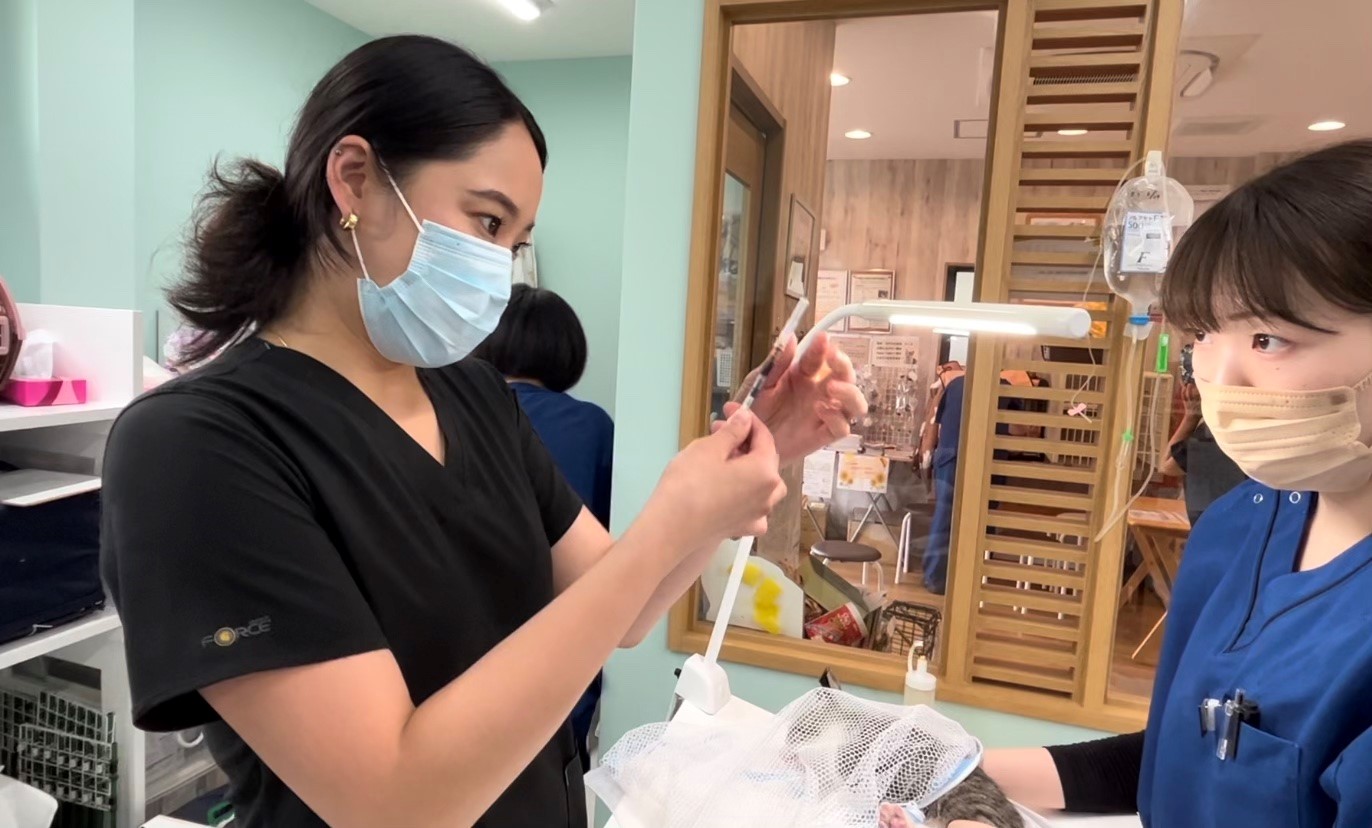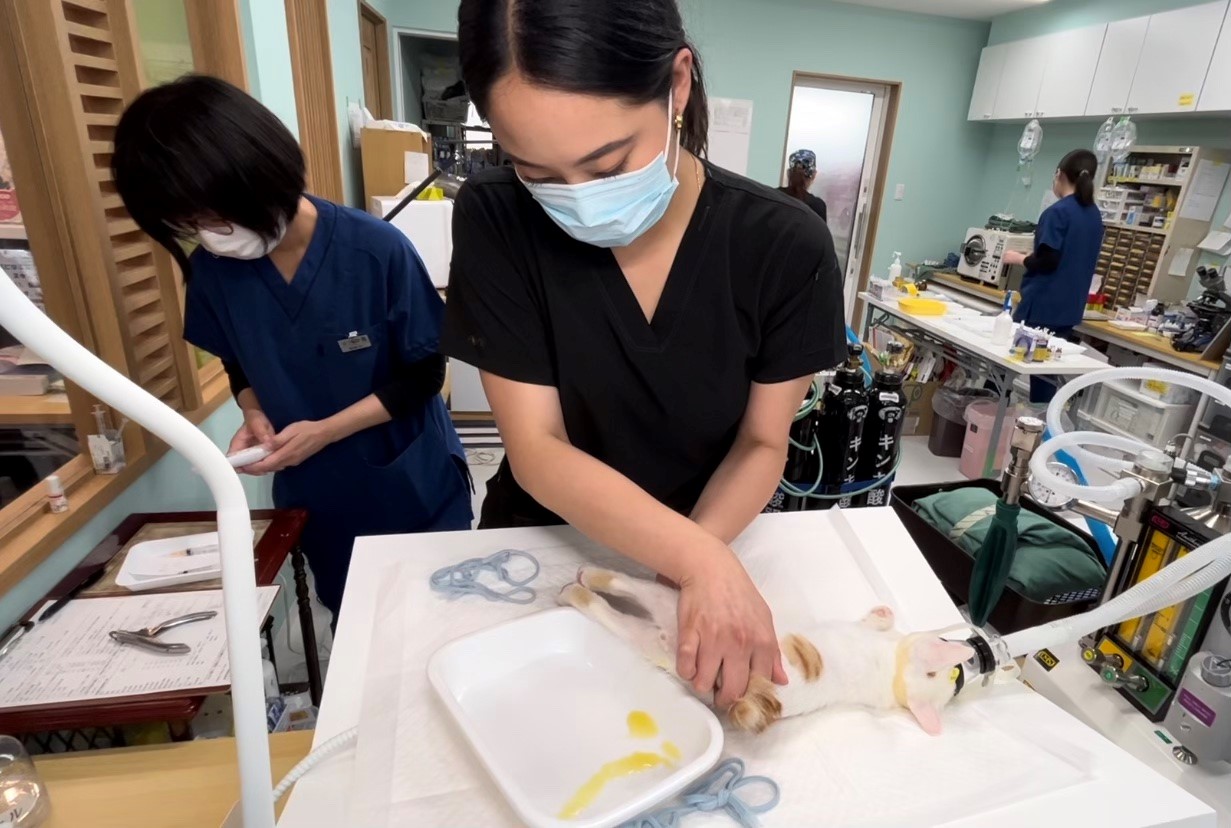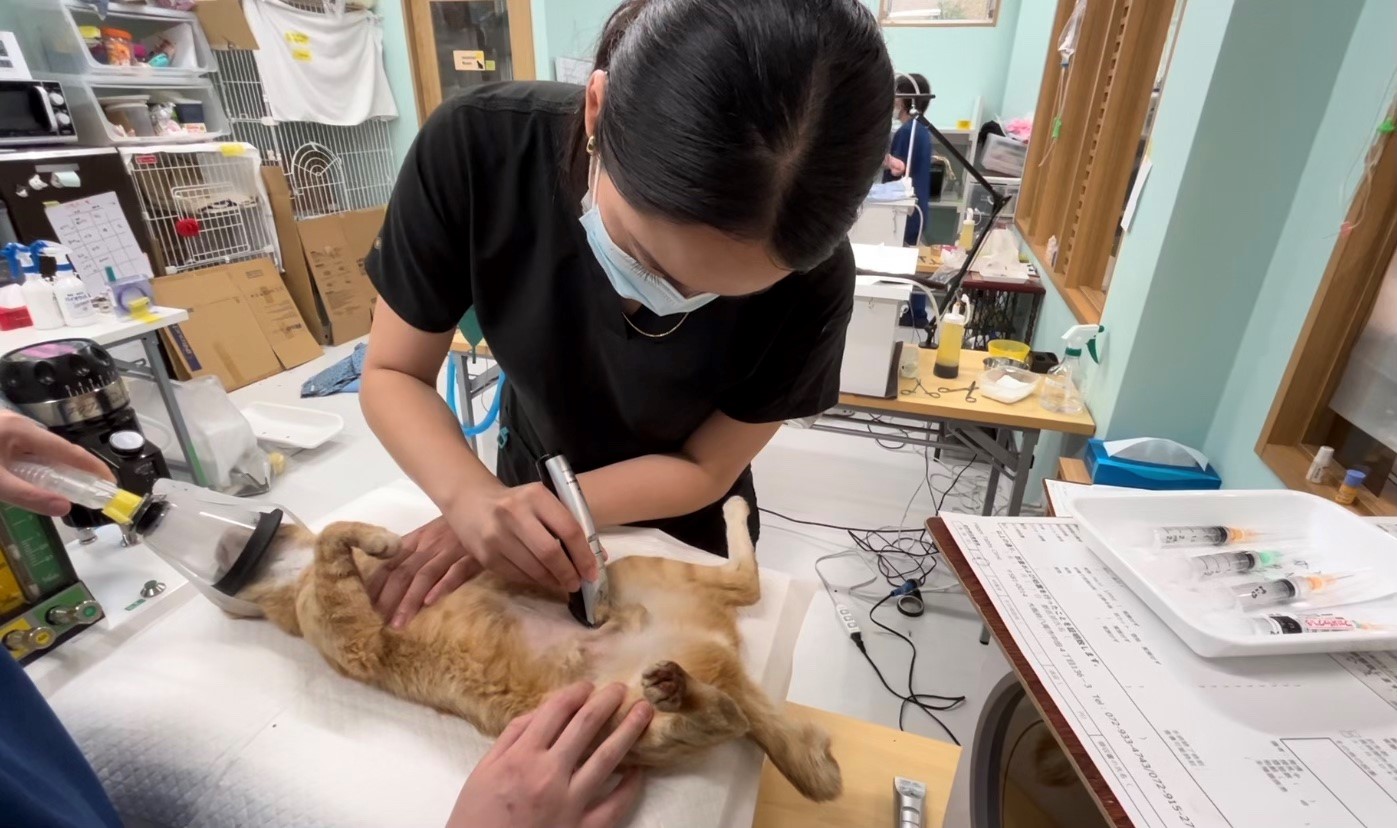Juliann (Jay) Chou
During my Global Programs experience, I conducted research and partnered with the Japan Cat Network (JCN) to volunteer at their locations in Tokyo and Kyoto, Japan. While volunteering, I was transporting kittens through the bullet train, setting up the cat cafe for potential adopters, and assisting in routine cat care and vaccinations. Through JCN, I was connected to the Kawakuji Animal Rescue and the Happy Tabby Clinic where I participated in each part of the Trap-Neuter-Release(TNR) process.
The Kawakuji Animal Rescue allowed me to actively take part in trapping and attend their leadership meetings. They proudly introduced us to all the parts that make up a shelter in Japan, including administrative and financial responsibilities. They educated us on government policies for shelter practices and the struggle for public support and education on TNR practices. In our interviews, we learned about how isolation, especially in rural areas, contributes to the lack of public awareness about the TNR process. We traveled into Ibaraki to assist an impoverished older gentleman in trapping his 8+ community cats to be neutered and returned. Many locals misunderstand the contributions of the rescues and even those who care for the welfare of these animals are fearful because conventional practices call for mass euthanasia. Because of this history of animal welfare in Japan, we were grateful that this gentleman entrusted us with his cats so that they would be returned home safely after their procedure.
At the Happy Tabby Clinic, I acted as a veterinary surgical assistant preparing felines for surgery and assisting the staff and acting veterinarian. There I learned how veterinary practices and veterinary education differ in Japan, including how students begin professional school immediately after high school. The curriculum for neuter surgery is nearly nonexistent and many veterinarians learn post-grad in hospitals that they work or through their own efforts. The veterinarian we worked closely with was self-taught through American veterinary textbooks that included step-by-step image instructions on how to perform spays and neuters. There are no existing textbooks such as this written in Japanese. She now moves forward with hosting and teaching other veterinarians how to perform the surgery through SpayVets Japan.


Lastly, our main goal in Japan was to conduct our research on the public perception of stray and domesticated felines as it pertains to transportation and access to veterinary care, as well as TNR efforts and stray population management. We became familiar with how the governments operate and how it has changed within the last 10 years. At every opportunity, my research partner and I interviewed leadership and staff to better understand the background of animal transportation and TNR as it has been introduced and perceived in Japan. Some of these interviews include but are not limited to TNR veterinarians, GP veterinarians, TNR staff and leadership, public policymakers, and service dog training administrators. In our interviews, we were also introduced to how sociocultural factors play a major influence in whether or not government policies are enforced. Though there are many laws in place for animal welfare, the general trend is that if the general public does not care, the law is not enforced.
Overall, this has been an experience of a lifetime to have the privilege of learning and traveling while being introduced to new cultures and lifestyles. I will definitely be visiting Japan sometime in the near future!

